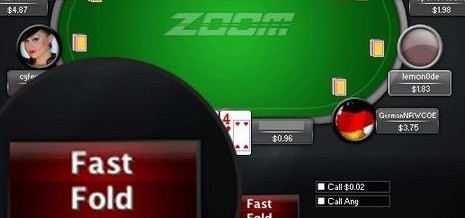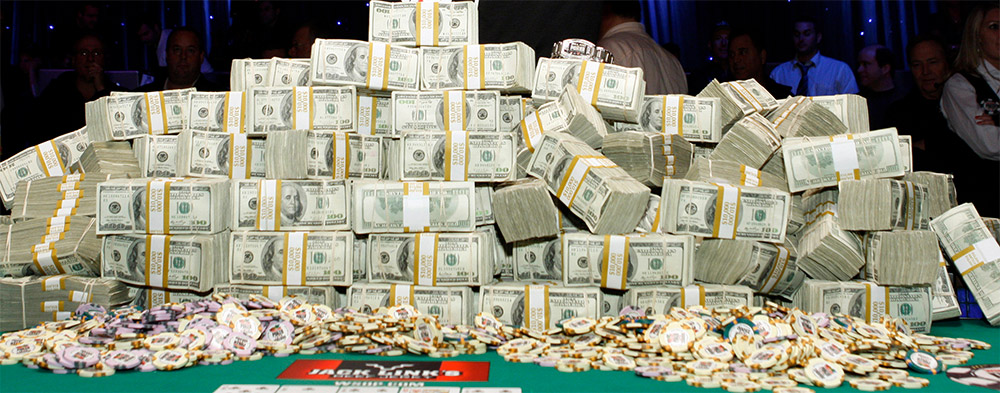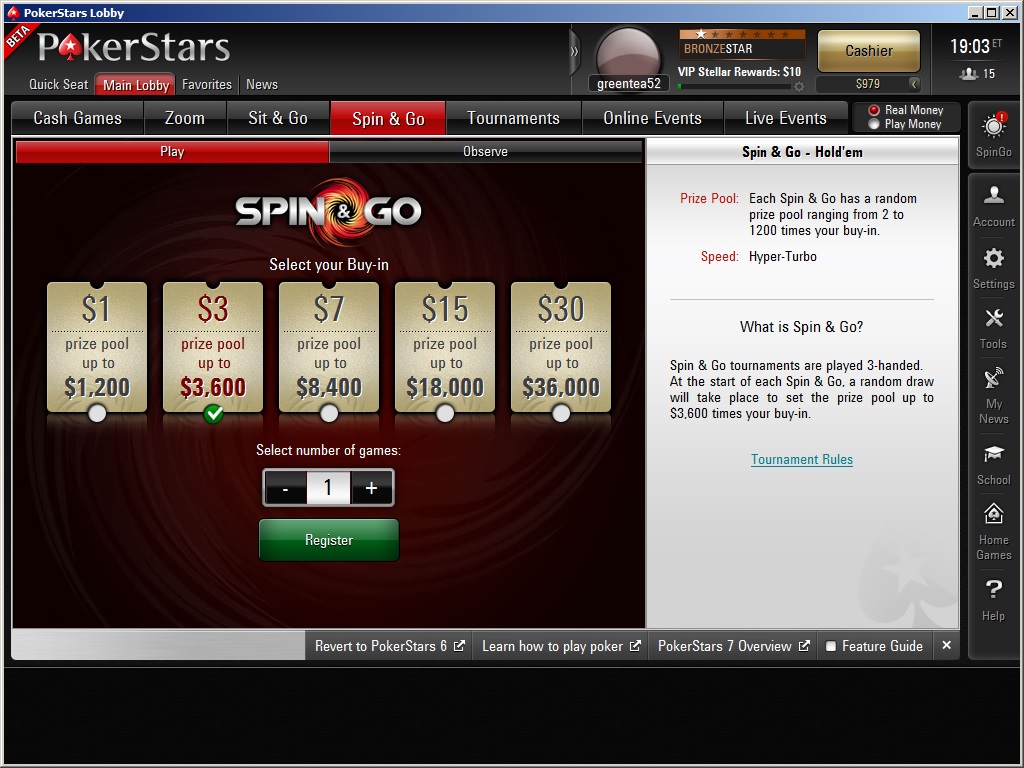
Some years ago the quick tables (Rush, Speed, Zoom, etc) have changed our way of playing poker online. Fast poker was launched for the first time by Full Tilt Poker in 2010. Later, other rooms took example on FTP to also offer a fast poker format.
After analysis, what are the advantages and disadvantages of these tables? Is the calibre stronger or weaker? Is fast poker attracted more sharks or fish?
Here are basically the advantages and disadvantages of these quick tables (named Zoom thereafter article — to this day, the most popular quick poker).
Benefits
The first obvious advantage of fast poker is the volume of hands that can be. According to an approximation (which varies according to your VPIP and a few other factors), 1 Zoom Poker table for example equals 3 regular tables. In other words, if you play an hour of Zoom to a table, you play as many hands as if you had played 1 hour long on 3 regular tables.
That represents a big advantage because it's less difficult for the eyes and the action follows better.
Here are some clarifications on this subject.
If you have a standard screen, it will be easy for see you to display 4 tables of Zoom and many the action (and your HUD). The display will be clear and you control the speed level of the hands that you receive.
To play as many hands, you would need 12 regular tables, which appears much less well on a screen 15-inch or even a 17-inch laptop. Furthermore, by Zoom, you control the speed at which you receive your cards. You can "fast fold" to get a new hand at the moment or wait a bit that the action is played before folder your hand (what you will do if you have big decisions to make on other tables). This way, you reduce the speed of the game provided remove table. Furthermore, by Zoom, you can never be involved in more than 4 difficult situations to play if you play 4 tables. If you want the equivalent in regular tables and you have 12 tables open, on occasion, you can have more than 4 situations (hands) difficult to play at the same time. No need for precision that in these moments, the risk of errors is greater.
Zoom tables you will also learn to play against all types of players. When you choose your tables usually (non-zoom), you will choose tables where the caliber of players is the lowest. You'll be sort of a "bumhunter" (a Hunter of fish in other words). Playing fast Poker requires you to adapt you quickly against any type of player and without a lot of information.
In turn, this type of poker requires you more than ever to take notes and be attentive.
Another big advantage is that all players have the same access to the bad players present at a given limit.
You surely already happened to target a juicy table with 2 or 3 big fish to see 12 players waiting list before you. In this situation, you can be sure that fish will be dry before you have your seat.
Playing fast poker, everyone has the chance to play against the worst players.
For others, the Zoom can also have the advantage of being less tiltant the absence of dynamic. Away from us the idea of saying that the Zoom is not tiltant, but it can evacuate a regular tables tiltant factor which is dynamic.
A good regular you took in target and seems you 3-better at a very high frequency. A little experienced player can feel persecuted and make bad adjustments. Some players will be nervous wreck and decide 4-better at the wrong time or caller with one hand marginal off-position, simply to fight the aggression of the opponent.
In addition, the same player who we "cooler" (a hand very strong versus a stronger hand) repeatedly could be something very tiltant. By changing table in each hand, you reduce the chances that such situations occur (which is of course a disadvantage for you if you have a very good command of your game).
In closing, the Zoom is a good school because it pushes you to play against all types of players. If your goal is to climb limit, you will not want to be a classic bumbunter and only play the lowest competition, you also want to beat the regular of your limit. If bumhunter is more pay in the short term, the conduct of regular good of your limit will be more paying for you in the long term, both at the level of money than at your wealth of knowledge and your ability to be winning at upper limits.
Disadvantages
Zoom tables have no benefits. According to many, they are more difficult to beat because they attract good regulars who want to put a lot of volume. According to these same observers, fish are less bad and the regulars there are better (because they are not afraid to play against any player).
The absence of dynamic is also something negative in our view. A player very observant and aware of the dynamics of the table will be able to make big calls at the right time and big bluffs at the right time. Part of the winrate of a player will result in his way to adjust to the dynamics of the table. Zoom, it will be "in a vacuum" (without history, without info) more often than otherwise.
It is also what many recreational players are looking for. For them, they want to regain the sense of friendly games (and therefore, always play with the same players). Their "edge" (according to them) comes from the fact that they are observers and they have a good psychology of the players. Thus, they will be able to bluff players tight and value better against the calling station. For the recreational player who did not Hold'em Manager or PokerTracker, the Zoom will not have many attractions.
Several fish are therefore going to sulk Zoom since they will feel losing their edge (that of "feeler" the game and understand the dynamics of the table). It is said that fish in Zoom are less fish because they are often more tightly.
Which often grows a recreational player to play 75/35 is that it plays only a table and is eager to have action. Zoom, it can play a single table and folder quickly if it more or less like his 97o15 UTG. Obtaining a hand a few seconds after folde will surely encourage it to play a more conservative style.
Another disadvantage of the Zoom is that several players will play way too tight by reflex. When you play less tables, there is more awareness of each hand and we want to defend every situation and win most of pot that we can win. It defends itself in all situations, it lets nothing pass through.
In Zoom, it is easy to become passive and neglect situations where one needs to be tougher to win pots. Accordingly, we lose more than jars and abandoned a few other pots that could have win by being a little more aggressive or stubborn. In short, it focuses more on 'easy' situations to play on situations marginally + EV (winners).
To play in Zoom, it is also essential to be very uncomfortable with his HUD and have a good ability to take notes. Players of "feeling" will feel there without landmarks.
In closing, what is the Zoom is easier to beat than the regular tables? Having read several testimonials, nothing is sure.
One thing is certain: the Zoom attracts some bad players by its speed and repel others by his absence (at least, in part) of dynamics of the table.
Are you more like quick poker or regular poker and why?
You can discuss on PokerCollectif forums: 3 years later, back on the fast poker vs tables regular









